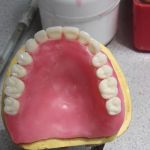Foods That Soothe Oral Ulcers and Promote Healing
Trending Blog Articles
emergency dentist warren ohiodentist in warren ohioemergency dental syracuse nyimplant repairgum recession meaningabc urgent dentalemergency dentist plainfielddentist dracut mastress oral ulcersemergency dentist huntington beach cadenturedental urgent care 24/7dickson dental in dickson tndental hygienist benefitsurgent care sun valley capediatric dentist rio rancho nmdefine occlusion in dentistrywhat nutritions can cause tooth decay and cavitiesgum suckingdentist rio rancho new mexico
Popular Dental Blog Posts
 How to Deal with Mouth Sores from Braces: Effective Tips and Treatment Solutions
How to Deal with Mouth Sores from Braces: Effective Tips and Treatment SolutionsDiscover how to deal with mouth sores from braces with effective tips and treatment options. Learn how to prevent mouth ulcers and improve your braces oral care routine.
 Relief for Brace Sores: Treating Mouth Ulcers Caused by Braces
Relief for Brace Sores: Treating Mouth Ulcers Caused by BracesLearn how to effectively treat mouth ulcers caused by braces. Discover home remedies, over-the-counter options, and tips to prevent future sores. Find expert advice at Dentistry Toothtruth.
 Understanding Oral Ulcers: Causes, Symptoms, and Effective Treatments
Understanding Oral Ulcers: Causes, Symptoms, and Effective TreatmentsExplore everything you need to know about oral ulcers, including causes, symptoms, types, and the best treatment options. Learn how to prevent mouth ulcers with expert advice from Dentistry Toothtruth.
Categories
Popular Dental Clinics
 Amara Dental of South Plainfield4.0 (122 review)
Amara Dental of South Plainfield4.0 (122 review) McDonough Endodontic Center4.0 (333 review)
McDonough Endodontic Center4.0 (333 review) Minnesota Orthodontics - Eagan4.0 (166 review)
Minnesota Orthodontics - Eagan4.0 (166 review) Affordable Dentures & Implants4.0 (443 review)
Affordable Dentures & Implants4.0 (443 review) DS Dental Arts4.0 (155 review)
DS Dental Arts4.0 (155 review) Periodontal & Implant Associates - Montville5.0 (9 review)
Periodontal & Implant Associates - Montville5.0 (9 review) Top Dental Blog Posts
Youngstown, OH Emergency Dentist - familydentistryonline.netDentist Urgent Glendale, CA - familydentistryonline.netDelaware OH Emergency Dentist - 24/7 Urgent Dental Care in Delaware, OHEmergency Dentist Services in El Monte, CA - Fast and Reliable Dental Care for Urgent NeedsAffordable Denture Repair and Implants Detroit, MIAffordable Denture Repair and Implants Detroit, MI
Most Searched Dental Clinics
pearla dental worcesterbruce matthews dentistvalleywise clinicdelaware maryland dentalchildren's dental funzone coltondentist woodridgepacific coast pediatric dentistryengle dentistrydr oshinsmiles ridgefieldridgewood pediatric dentistrysmiles for life dental care581 n eastern avealexander goldsteindel rio dental san mateodr jessica chenaspen dental alvinivory dental and orthodontic specialistsmondovi dental waterburycomfort dental columbus oh
Hot Blog Topics
 The Importance of Oral Health Education During Pregnancy for a Healthy Pregnancy
The Importance of Oral Health Education During Pregnancy for a Healthy Pregnancy Best Tips for Brushing Your Teeth Properly for Healthy Gums: Essential Techniques for Oral Health
Best Tips for Brushing Your Teeth Properly for Healthy Gums: Essential Techniques for Oral Health Why Skipping Dental Checkups Can Lead to Bigger Oral Health Problems
Why Skipping Dental Checkups Can Lead to Bigger Oral Health Problems Advantages of Porcelain Dental Restorations
Advantages of Porcelain Dental Restorations How Can Diabetes Cause Tooth and Gum Problems? Preventing and Managing Oral Health Issues
How Can Diabetes Cause Tooth and Gum Problems? Preventing and Managing Oral Health Issues Healthy Habits for Promoting Good Oral Health and Hygiene: Tips for a Healthy Smile
Healthy Habits for Promoting Good Oral Health and Hygiene: Tips for a Healthy Smile 